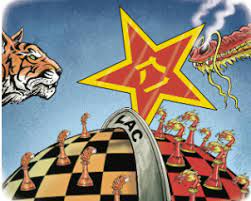Doval is right that trust is eroded
Ajit Doval’s assessment at a recent Brics meet that the situation along the LAC since 2020 has eroded strategic trust with China is as candid an admission as possible. The Chinese of course continue to compartmentalise the border dispute and insist that the two sides should look at the overall relationship. But Beijing should realise that the border row is symptomatic of a larger problem plaguing India-China ties. Today’s China has taken an ultra-authoritarian turn and is intent on challenging democracies and rewriting the rules-based international order. And in Beijing’s scheme, India is merely a country that needs to be periodically reminded of its secondary position in Asia.
Therefore, China is far from interested in addressing Indian interests. Why else would it continue to back a belligerent but bankrupt Pakistan? That the issue isn’t only about the border was exemplified by New Delhi’s decision to reject Chinese EV giant BYD’s $1 billion investment plan for a car and battery manufacturing plant. True, the investment would have been a shot in the arm for India’s EV ecosystem and generated considerable local employment. True, too, the Indian market remains a leverage for New Delhi to put pressure on Beijing. However, the strategy of incentivising Chinese good behaviour through market access and economic cooperation has failed over the last decade.
Under Xi Jinping, China no longer operates on expected lines and the Chinese Communist Party has even gone after successful Chinese businesses that don’t conform to its political objectives. This is precisely why we see a shift in the US today where there is bipartisan support for competing with China economically and not giving it any free passes. However India, to make up for the loss of Chinese investments, should look to other sources of FDI by furthering industrial reforms and stepping up its own production capacities. Right now, denying China market access is a more effective leverage.
